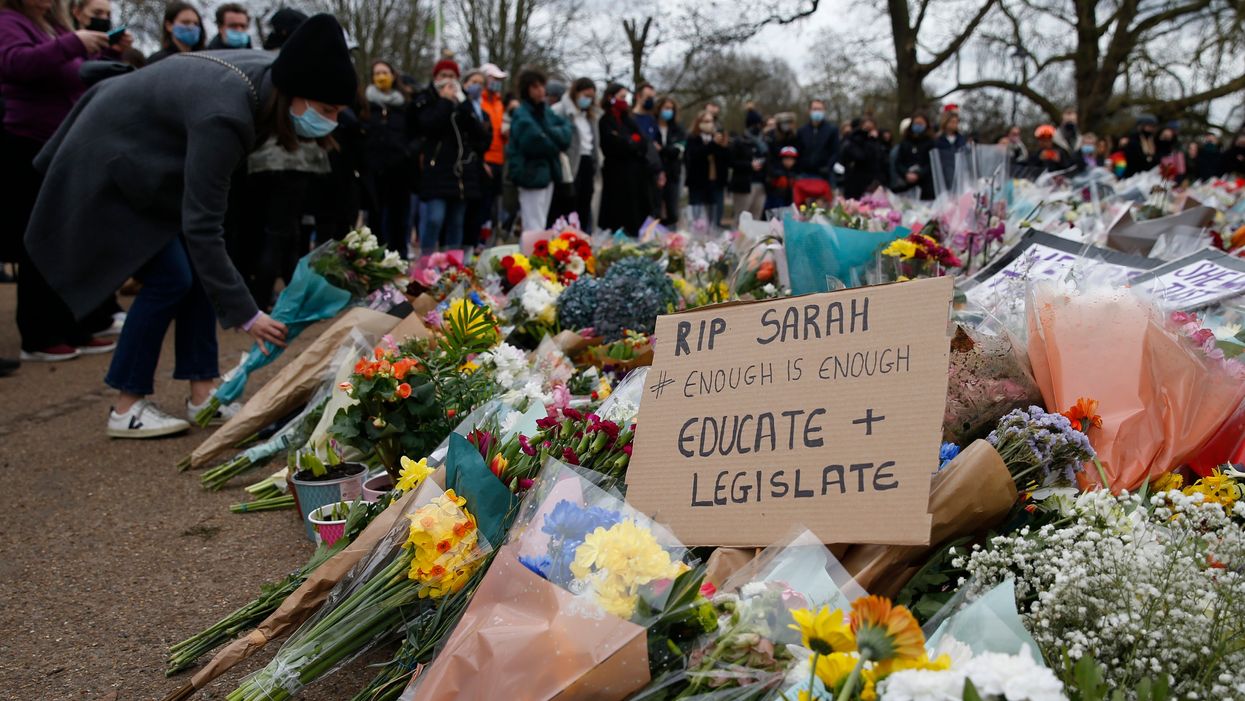Elaine McCallig
Oct 12, 2021
A phone service which will allow people to be GPS-tracked while walking home has been pitched in the wake of Sarah Everard and Sabina Nessa’s murders.
As the 888 or “walk me home” service is reportedly backed by home secretary Priti Patel, we could see the app up and running as soon as Christmas.
Here’s everything you need to know about the proposed new service, and how it’s been received:
How would it work?
Proposed by BT, who currently run the 999 emergency phone line, the 888 or “walk me home” service would track the user on their route and alert their emergency contacts if they don’t reach their destination on time.
People will be able to input their home address and other favourite destinations. Before setting off on their journey, the user would provide an estimate for how many minutes their journey is expected to take by opening the app, or by calling or texting 888.
The app would also allow a user to send an instant alert to the police.
Sign up to our new free Indy100 weekly newsletter
Writing in theDaily Mail, BT boss Philip Jansen said he feels that he is in a position to do something practical to make people - particularly women - who are walking home feel safer.
He wrote: “I am not a politician, I can’t change society, but if I can use innovative technology to improve personal safety, then I am determined to do so.”
BT is now working with the police and the wider telecoms industry to develop the service.
Home secretary Priti Patel approved the proposal last week, saying: “This new phone line is exactly the kind of innovative scheme which would be good to get going as soon as we can. I’m now looking at it with my team and liaising with BT.”
Jansen projects the service could be available by Christmas at a cost of £50 million.
How is it being received?
The proposed service has been met with criticism by people who say the app puts even more of a burden on women to adapt their behaviour and fear it may perpetuate a culture of victim blaming.
Writing in The Courier, columnist Kirsty Strickland called the app a “sticking plaster” instead of a solution.
Strickland highlighted that victim blaming is already a major problem today, and this could exacerbate it further. If a woman chooses not to use the app and is killed - will her death still be a tragedy, or would she be partially blamed for it?
In a feature for MyLondon, journalist Rachael Davis said it is just another tool that shifts the blame - and the responsibility - of male violence on to victims.
Davis wrote: “The 888 app is simply a high-tech version of a largely useless precaution women have been taking for years - saying ‘text me when you get home’, waiting up worrying until they do, and wondering what you could do if they don’t.”
Deputy Labour leader Angela Rayner also spoke out about the service, and highlighted that just one per cent of reported rapes result in a charge.
Others said the £50 million investment would be better spent on existing services that are already stretched.
Others said the service misses the point, and papers over a larger systemic issue.
There are also fears over privacy and freedom with Silkie Carlo, director of campaign group Big Brother Watch telling The Independent: “Tracking women’s movements is not a solution for male violence. This is a terribly misguided, invasive and offensive policy that misdiagnoses the problem and will do nothing to make women safer.”
What is being done to tackle violence against women and girls?
The Home Office published a violence against women and girls strategy during the summer, and highlighted several points of improvement.
This includes investing in victim support services, launching a “Safety of Women at Night” fund to top up the Safe Streets fund, and the appointment of a new police chief to spearhead the fight against violence towards women and girls.
But what has actually changed for women since Everard’s murder? According to Jamie Klingler, co-founder of Reclaim These Streets - nothing, at least not on a practical level.
Speaking to indy100, she said: “By the time we’re asking for justice for women it’s too late because they’re already dead. I want to be done with asking for justice.”
Men have to be the ones to call each other out, Klingler said.
Djanomi Headley-Fulani of Sistah Space told indy100 that the epidemic of violence only seems to be getting worse, and the onus on women to make themselves “attack-resistant” is a “constant rhetoric of victim blaming.”
A new volunteer-led service called Strut Safe sends volunteers to walk home with people who may feel unsafe, or may stay on the phone with people who need some company as they travel.
Criticism over the potential 888 service is the latest in a string of measures and advice that’s received backlash for placing the onus on women instead of shining a light on toxic masculinity and misogyny.
After Everard’s case concluded, Met police received pushback when cops advised women to “rush away” if they feel unsafe. Similarly useless advice was given by the prime minister, who urged women to flag down a bus if they are stopped by an officer they don’t trust.
Indy100 has approached BT and the Home Office for comment.
Top 100
The Conversation (0)














